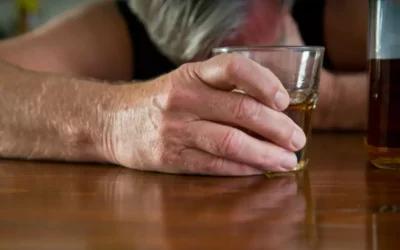How to Build a Sober Support Network in Recovery All Points North

If that’s the case for you, or you simply prefer individualized support, consider reaching out to an individual therapist. Therapists not only have an abundance of tools to help you with specific mental health challenges but can be lasting advocates for your recovery and well-being no matter what you’re going through. sober network Group therapy is facilitated by a specially trained and licensed therapist but ultimately focuses on group members helping one another through their challenges in recovery. It brings together a group of people with a common problem to overcome obstacles in sobriety and support one another on their journeys.

What is a Sober Living Home?

This is why it is vital to develop a sober support network throughout your recovery journey. If you’re a student, it’s likely that your school or university has special programs available for people who struggle with substance abuse and addiction. These programs could consist of therapy or counseling, the hosting of recovery-related groups, resources to get outside help and possibly funding for treatment.
Can Therapy Be Part of Your Support System?
Relationships provide support, encouragement, and a sense of belonging, all of which are crucial elements in the recovery process. By cultivating a support network, individuals in recovery can enhance their overall well-being, strengthen their resilience, and increase their chances of long-term success. Emotional support, accountability, and access to resources are just a few benefits of a sober support network. Acting as a safety net, this network assists individuals in mending damaged relationships, reconnecting with family and friends, and maintaining sobriety. The consistent support and encouragement from your network can make all the difference in your journey to a successful recovery. A sober support network acts as an invisible scaffolding, aiding individuals in navigating the challenging landscape of recovery.
Beware These 5 Myths About Addiction and Recovery
These relationships may have been strained or damaged, and it can be difficult to rebuild trust and repair the damage caused. One of the challenges individuals in recovery may face is dealing with triggers and temptations that can potentially jeopardize their progress. Triggers can be situations, people, or emotions that remind individuals of their past substance use and can potentially lead to relapse.
Reducing Isolation and Promoting Connection to Others in Recovery
Although online interactions shouldn’t replace in-person communication, online support can prove to be helpful in many circumstances. For example, social media can help you stay in touch with friends and family who live far away and can’t meet face to face on a regular basis. You can also join online accountability groups to provide additional support in between your regular support group meetings. When addicts complete drug or alcohol treatment together, they often form lasting bonds that become a key part of their support system. Of course, these relationships should only be maintained if they are healthy. In essence, a strong sober support network is a cornerstone of lasting recovery.
Attending Support Group Meetings

In fact, some religious groups sponsor these programs because their ideals are largely aligned. The more people an addict has in their networks, the more likely it is that new and useful information will be passed among the various members. You can find local support group meetings by searching online or contacting organizations like AA and NA for meeting schedules in your area. Sometimes, you may need to wait a long time before working to fix past relationships. If the other person is willing, family or relationship counseling can be beneficial. While you might understand the benefits of having a sober support group, finding one may seem overwhelming.
Use positive reinforcement and gratitude
- Clear, open communication is important to help the members of the support network learn how to support you and adjust.
- Some people are so excited to have completed a rehab program that they don’t fully realize the importance of building a support network.
- Your addiction and health care professionals are people you can call when you have general questions or concerns about your sobriety and health.
- Dozens of academic studies have found that individuals who have close relationships with people who are abstinent or strongly endorse sobriety have a much easier time staying sober.
By being transparent about your needs, you not only allow them to understand your situation better but also enable them to provide the encouragement you require. Volunteering your time and talents to help others in need can provide a sense of purpose, responsibility, and connectedness. In addition, participating in community activities is an excellent way to meet new people and build a network of support within your local area. Addiction counselors report that substance abuse often begins when people use drugs or alcohol to enable them to socialize more easily. Most drugs have one or more characteristics that temporarily diminish anxiety or drown out negative criticism that might otherwise make socializing more difficult. Becoming dependent on drugs or alcohol for socialization can further limit an individual’s natural ability to socialize.
- Not only make you become prone to loneliness, but you will have nobody to voice your struggle to.
- Establishing a self-care routine fosters healthy habits and results in enhanced mental health outcomes.
- Accountability will help you maintain your recovery without setting you back.
- For many people, finding support from family members can be the fastest way to build a robust sober support network.
A strong sober support network can significantly increase your chances of long-term success. For some individuals, a supportive living environment can be key to maintaining sobriety. Sober living homes provide a structured and drug-free environment where recovering addicts can live with others working towards similar recovery goals. These environments can be instrumental in helping you build a solid support network while also minimizing temptations and potential triggers. In this section, we will explore the role of relationships in the recovery process and the benefits of having a support network.

Addressing Past Relationships
- Learning to build this sober support network is a critical tool, particularly in early recovery.
- In contrast, SMART Recovery utilizes a secular, cognitive-behavioral approach focused on self-empowerment and personal growth.
- These professionals play an important role in helping you maintain your life of recovery and stay healthy.
- Instead, all of your energy and focus can be spent where it’s really needed, which is on overcoming addiction.
